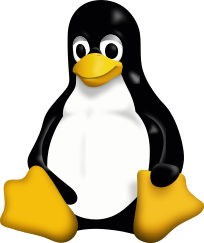Hey! I just wanted to share some information on different operating systems and how they compare in terms of security and privacy. Hope this clears up some things for some of you out there.

Windows
Being the most popular operating system (OS) is a double edged sword. Windows has by far the biggest market share due to it's ease of use and wide range of hardware support, but because of this most viruses are created to target it. So before even considering the inherent security of a system the popularity of it has a big influence on the number of attacks it may come under. Since Windows is an open platform and doesn't prevent you from running unknown programs in any way viruses can easily be coded and distributed online disguised as perfectly innocent software, which is then run by the targeted computer.
Leaks from the NSA (National Security Agency) through WikiLeaks over the past year have shown that the agency doesn't report venerabilities in Windows to Microsoft, but rather keeps them unknown so that they can create software to exploit them, leaving everyone exposed. This recently lead to a spike in the number of infections in systems running Windows around the time of a leak; the WannaCry ransomware virus was written based on NSA software and infected hundreds of thousands of computers within days earlier this year. WannaCry encrypts files on the infected machine, offering to decrypt them only when payment is made to the attacker through anonymous Bitcoin wallets.
As with most proprietary operating systems Windows has background telemetry processes which send data back to Microsoft about the user to 'improve the experience'. This data can include a wide range of personal information, from where you live, to who you're associated with, as programs like Cortona, the personal assistant built into Windows 10, learn about the user to understand their commands more accurately.

macOS
As Apple's operating systems are created exclusively for their own devices and cannot be legitimately purchased for third party systems the integration between the software and hardware is very tight, making them harder to compromise than a multi-platform OS. There is a misconception that Apple computers are immune to viruses, however this is a myth. All systems are prone to viruses and other attacks, and macOS is no exception. As the platform's popularity increases more exploits will be created for the software as their is a greater incentive to target it.
Like Windows, macOS is an open platform to developers, allowing anyone to write and freely distribute software online, however, programs released from unknown sources are automatically blocked from running until the user allows them through the security, giving it an extra layer of protection from malware.
In 2010 the macOS App Store was announced; a platform which allows third party developers to sell their software. Since the store is curated by Apple, users can be assured that the software is safe, rather than having to search the internet for third party software and possibly infecting their machine. This increased the security of the platform for the average user. Microsoft has followed Apple's lead with this and has since added it's own store to Windows.

Linux
Although not a specific operating system, but rather a family of operating systems of which there are dozens of 'flavors', for the sake of this article I will group Linux into one section as all Linux distributions are based around the same core.
This is the only free and open source software in this article. It is created by a global community of developers. These developers modify the code to increase security, stability, and speed, as well as adding in new features. Anyone can be a Linux developer; there is no company in charge and all the source code can be downloaded from various sources on the internet, such as GitHub.
Linux is the most widely used Operating System listed here. It has the smallest market share for personal computers but powers most of the web's servers, which is why it's so stable and secure. As well as the actual security of Linux being a deterrent, as a desktop operating system it doesn't have a large enough user-base to make it worthwhile writing malware for, and with Linux being used by more experienced users, as it can be harder to use than other operating systems, it is regarded as the hardest system of the three to exploit.
This is worth admiring
I really appreciate it, thanks!